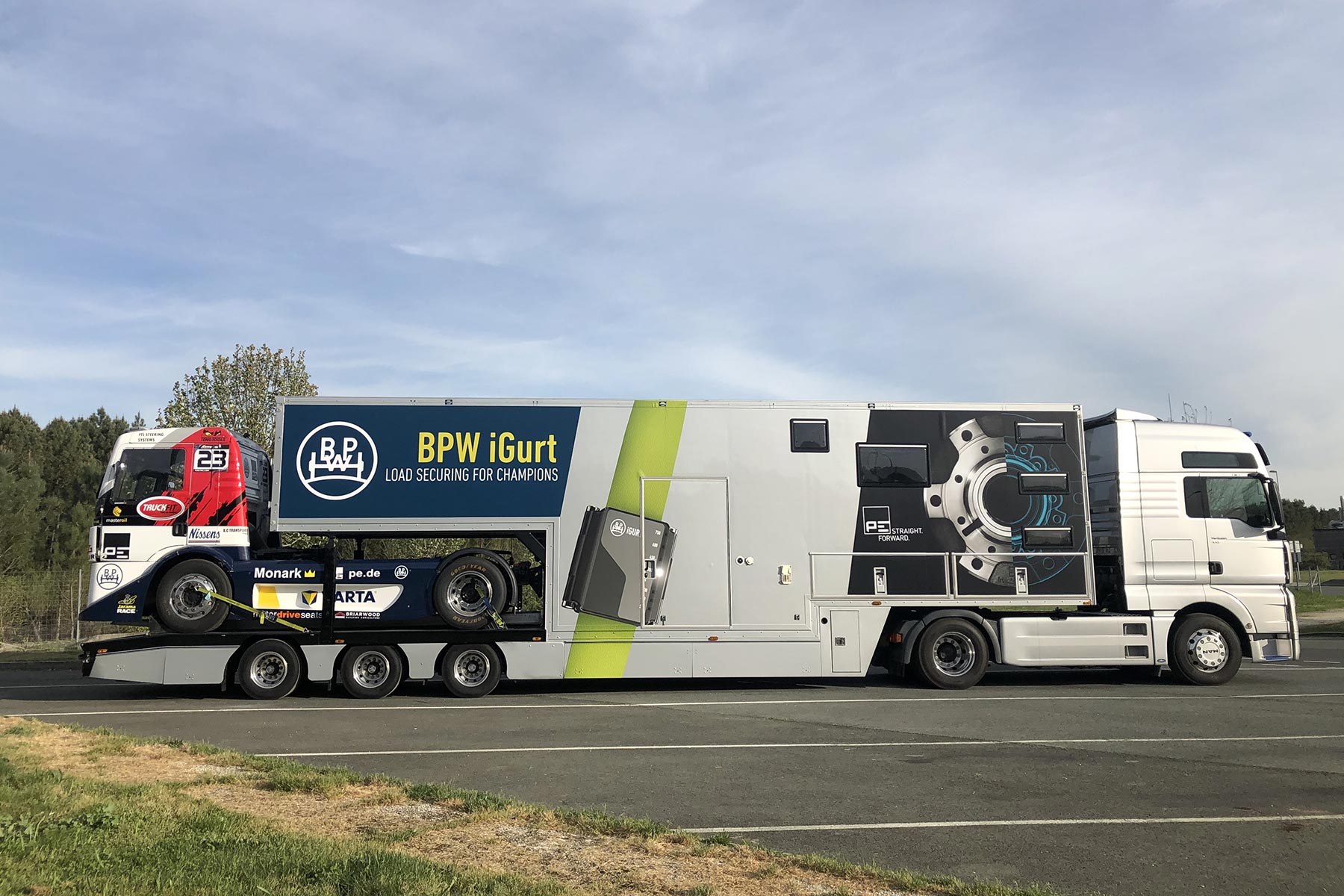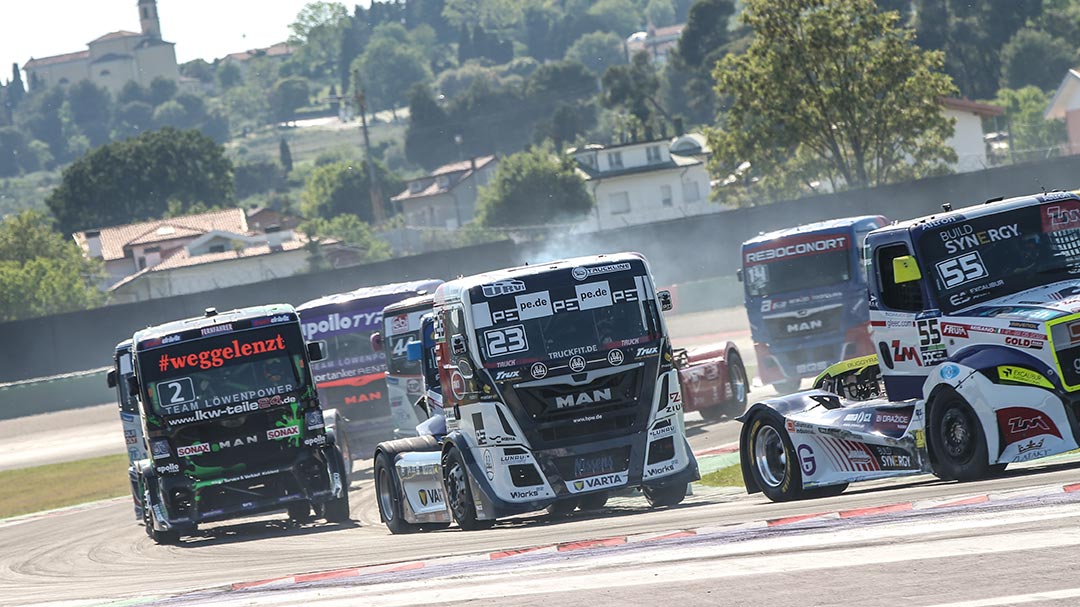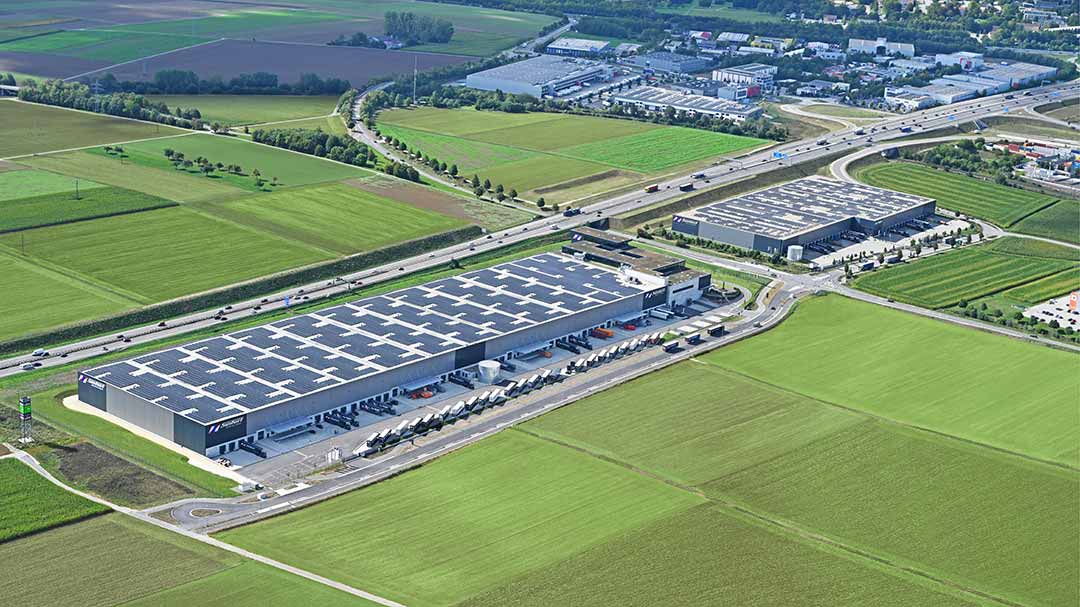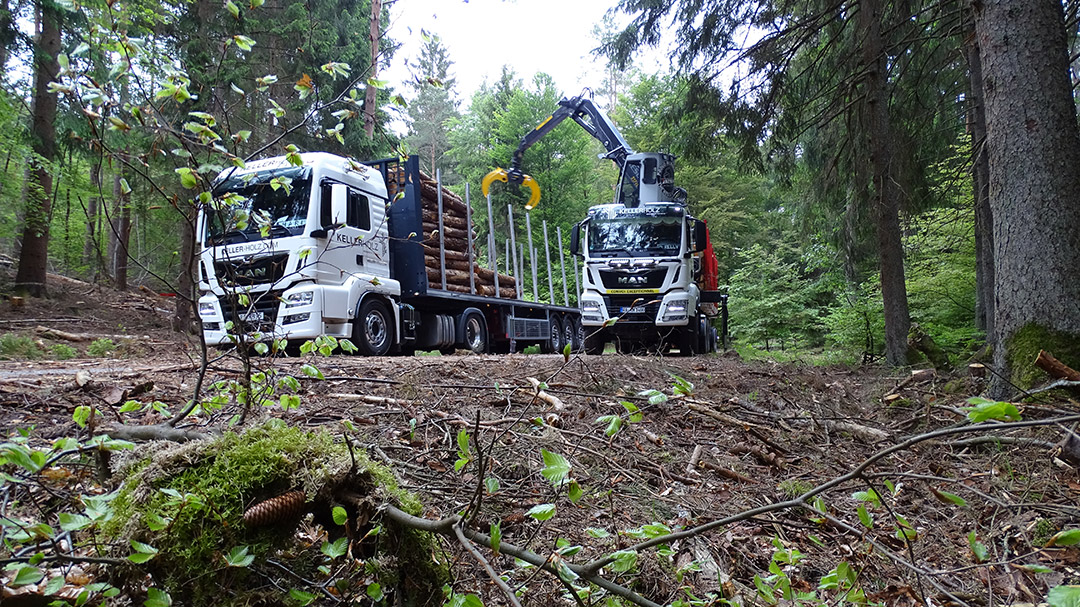Text: Juliane Gringer
Photos: T Sport Bernau
The FIA and ETRA, the organisers of the European Truck Racing Championship (ETRC), have set themselves an ambitious goal: by 2038, the championship should be net emission-free. The team T Spot Bernau has now been awarded for its commitment to climate protection. In an interview with Motionist, Team and Marketing Manager Melanie Derflinger explains which measures T Sport Bernau is already implementing and what is still planned.
The truck racing team T Sport Bernau, which is supported and equipped by BPW and PE Automotive, has become the first Goodyear-FIA-ETRC team to be awarded a star by the “FIA Environmental Accreditation Programme” . The vehicles with which you compete in European Truck Racing weigh 5,300 tonnes, have 1,200 hp, bring 5,400 torque to the wheel and consume a correspondingly large amount of fuel. How does that fit in with climate protection and sustainability?
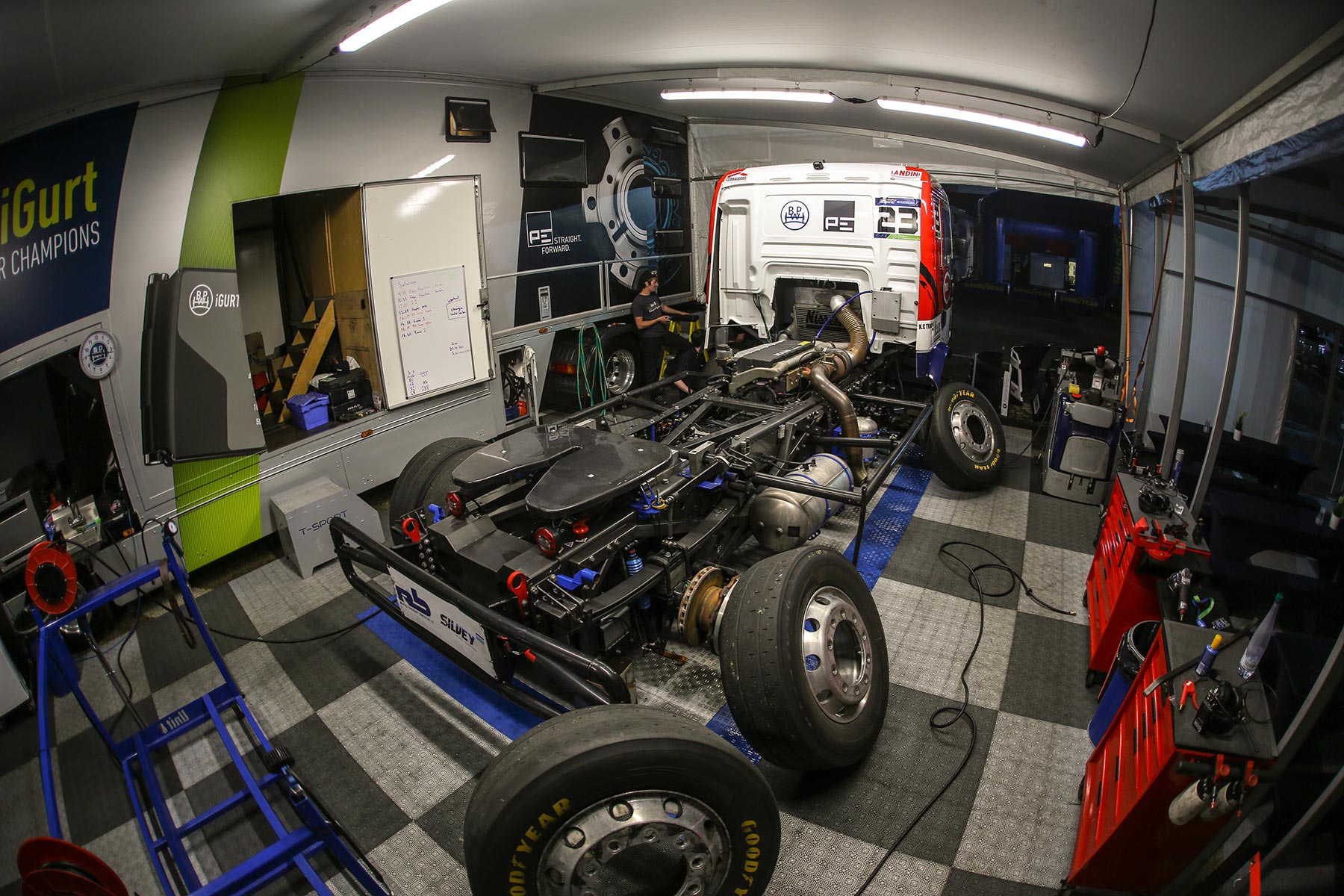
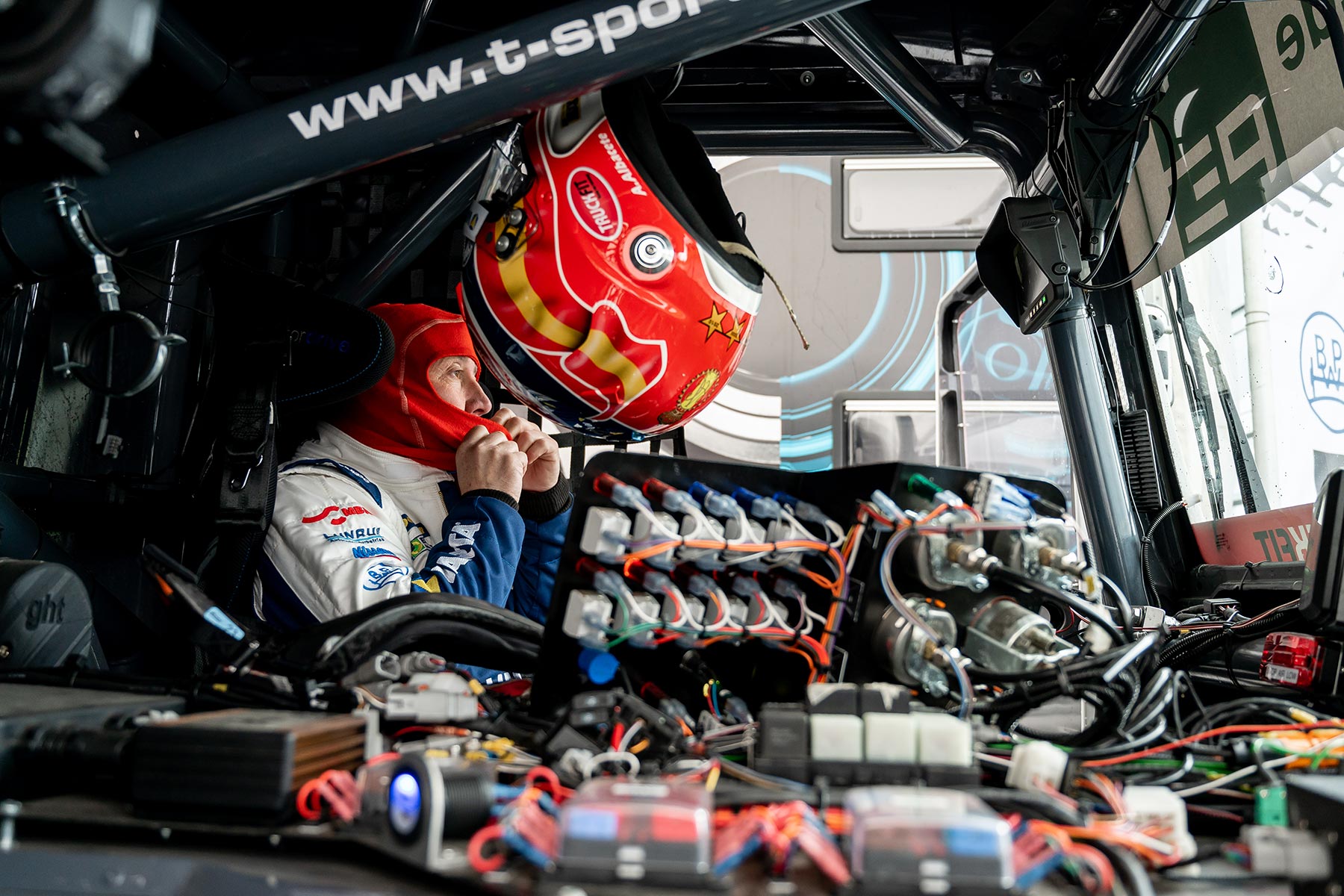
We are in constant contact with the FIA and our promoters, keep an eye on new developments and look for opportunities that we can still implement well in our team. I myself am currently paying more attention to our hospitality area. In the past two years, we were not able to offer catering at the race track due to the pandemic, but this is now possible again and is also well received. That’s why we’re concentrating on that right now, for example by separating waste there and reducing the amount of waste. Our promoter will soon record the championship’s CO2 emissions and offset them. This is a first important step on the way to completely reducing all avoidable emissions. The FIA is preparing to test electrically driven trucks. In addition, a concept for hydrogen trucks is also in the works. The challenges are similar to those on the road: the availability of models and the corresponding energy source must be guaranteed, as well as the necessary safety. We have a decisive advantage here: racing can take on the pioneering role earlier, so to speak, under laboratory conditions. I think our European racetracks will be equipped with it long before we experience a nationwide charging network on Europe’s roads.
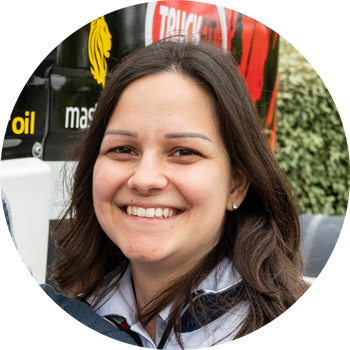
»Many people think that the heavy racing trucks are more harmful to the environment than, for example, the vehicles in a car racing series, simply because of their size. But that’s deceptive, especially since we’ve been operating on 100 percent HVO bio-diesel.«
Melanie Derflinger, Team and Marketing Manager T Sport Bernau
We simply want to be a role model for others with our team. Before you act, the first step is always to rethink. I realise that many colleagues are at this point right now. The star we were awarded definitely helps to make them more aware of the issue. The day after the award, other teams called me directly and asked how we did it and what we implemented. So I think a lot will happen in this respect for everyone in the near future.
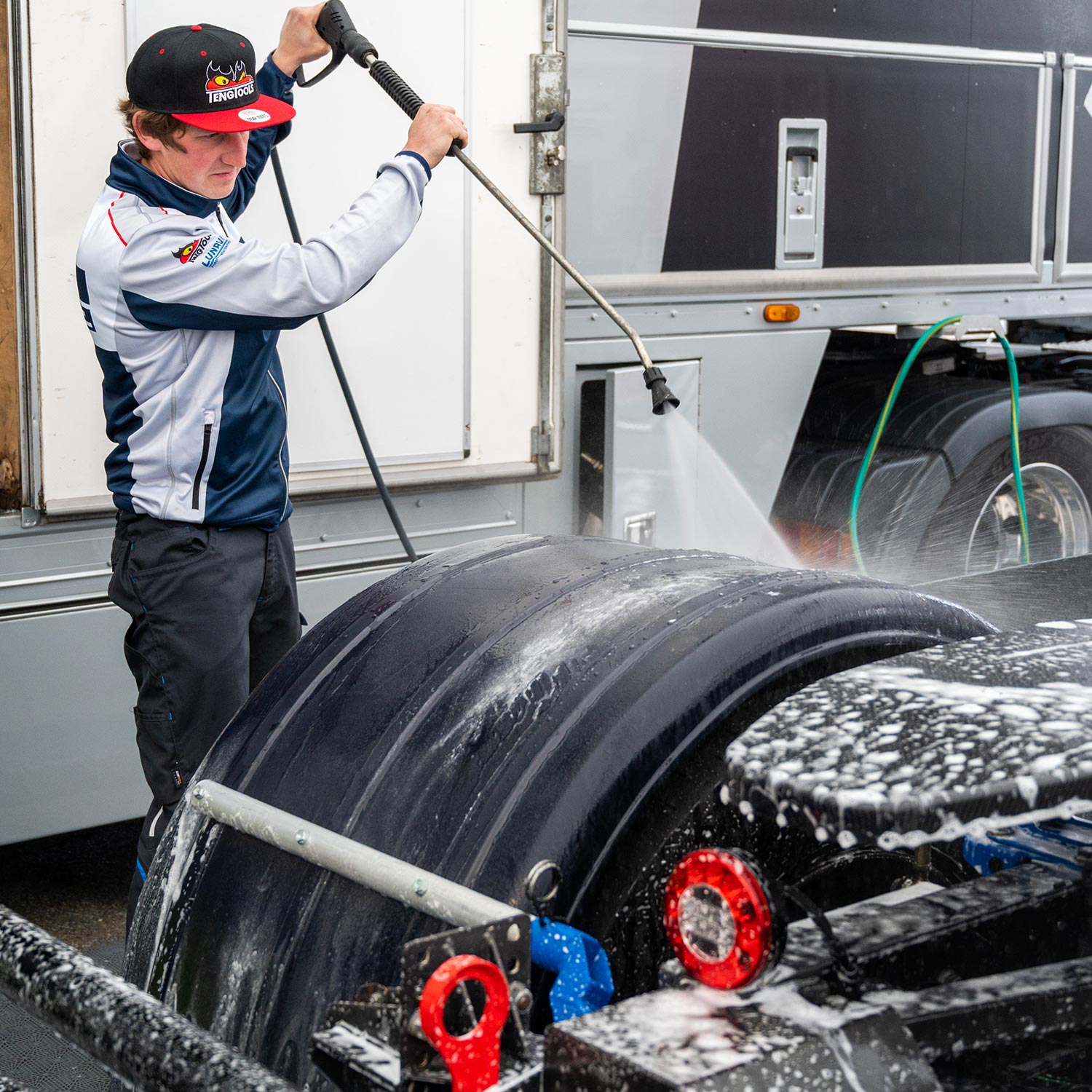
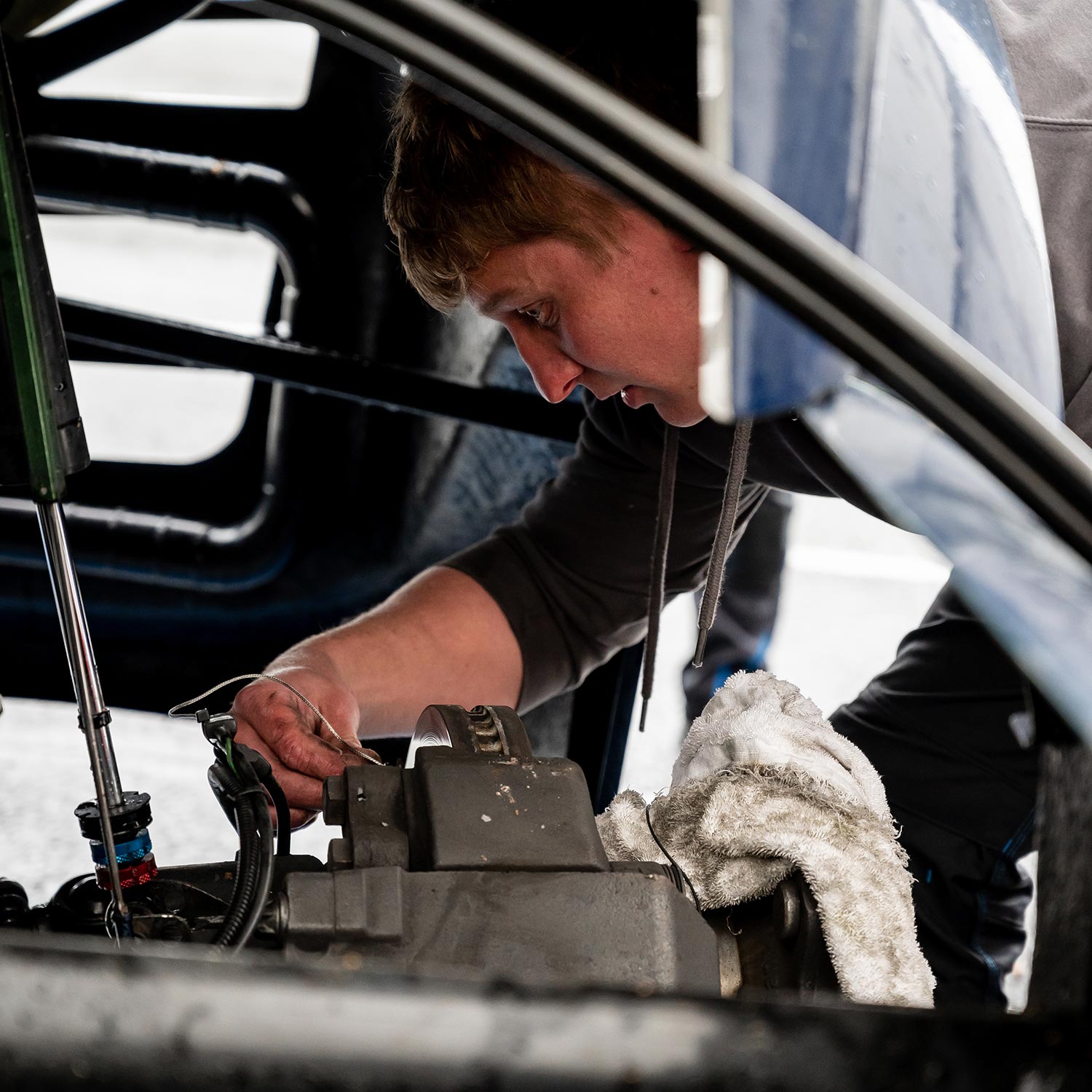
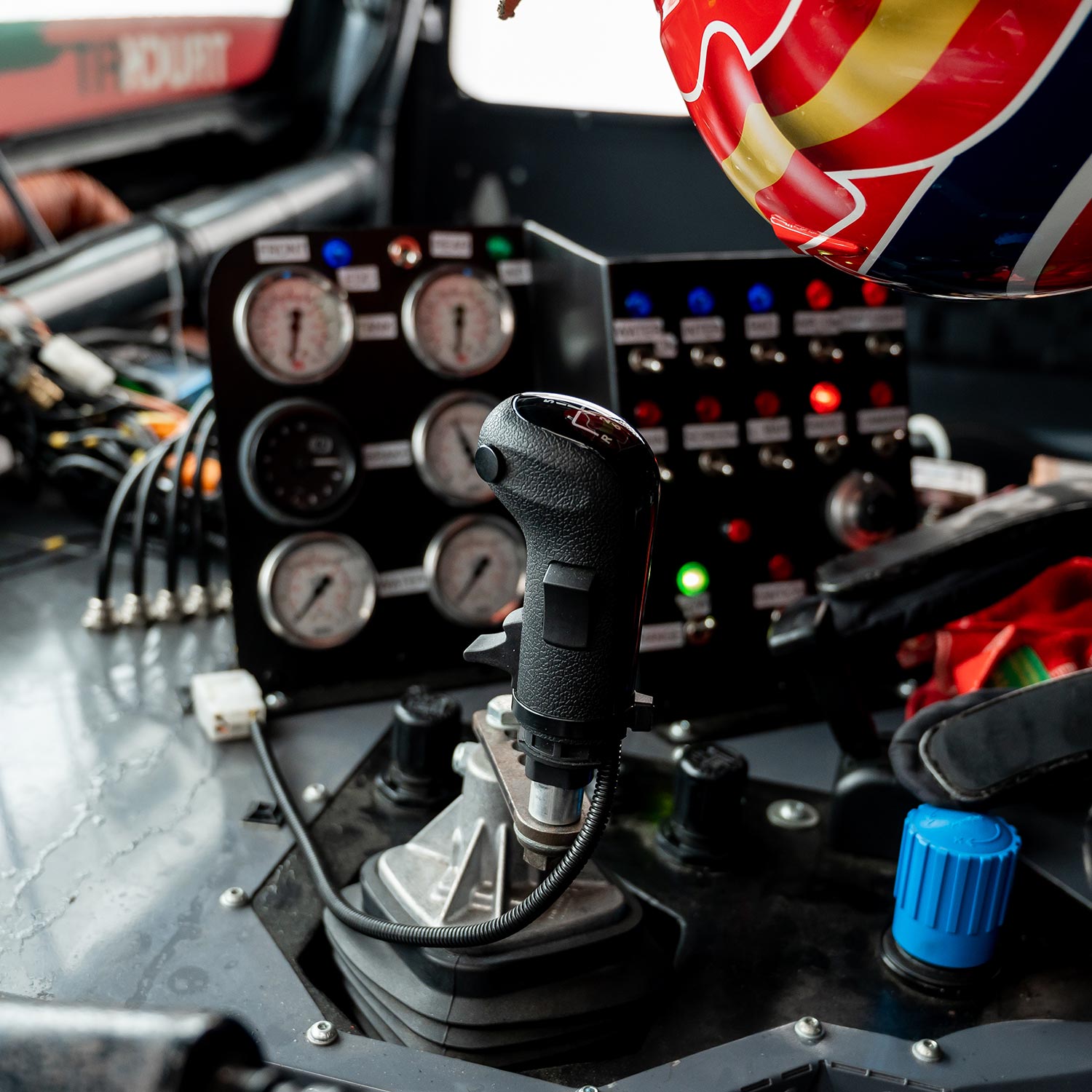
»Every year we inspire over 400,000 spectators on site at the race tracks and millions in front of the screens. There are also many professional drivers in the audience who keep our supply chains running on weekdays.«
Melanie Derflinger, Team and Marketing-Managerin T Sport Bernau
We have very high standards, but we are also realistic. There are some drivers active in this race series who are really good. If we finish in the top five, we will be very happy. But anything is possible: we could become European champions, we could finish in third place – or in fifth place with a difference of two or three points, which is what happened to us in 2021. The first race in Misano in May went very well, we were always in the top five in the various races. So that’s realistic, we’re now looking forward to the following months and to see what the season brings. It depends on good cooperation between the driver and the mechanics at the race track. And of course, a bit of luck is always part of it.
BPW regularly reports on the races in which T Sport Bernau participates on its social media channels, including Facebook and Instagram.
PERSON DETAILS
Melanie Derflinger has been active in truck racing for almost 15 years. After working for various teams throughout Europe, she founded her own racing team with her partner Timothy Frost, technical manager and chief race mechanic. They have been in the European Championship with T Sport Bernau since 2017. Derflinger is primarily responsible for organising events, marketing and looking after partners and guests at the racecourse.
